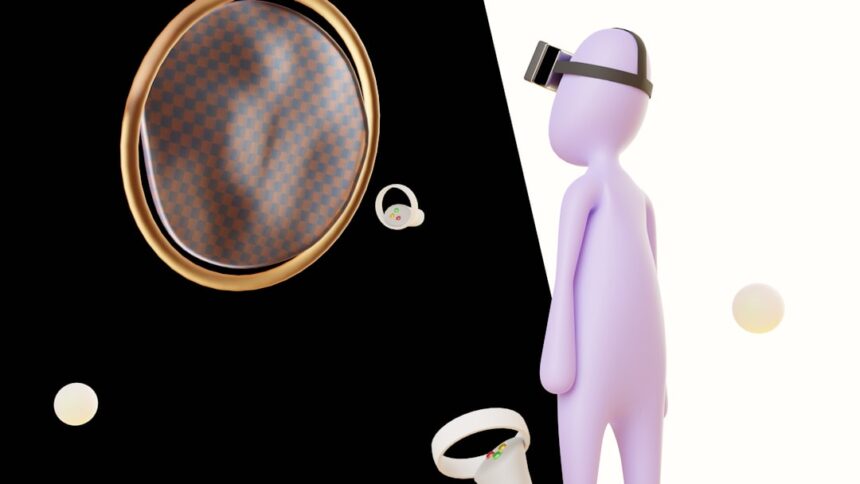Depersonalization and derealization are psychological phenomena that can leave you feeling disconnected from yourself or your surroundings. When you experience depersonalization, you may feel as though you are observing your own life from a distance, as if you are an outsider looking in. This can manifest as a sense of detachment from your thoughts, feelings, or even your body.
You might find yourself questioning your identity or feeling like you are living in a dream. On the other hand, derealization involves a sense of unreality regarding your environment. You may perceive the world around you as foggy, distorted, or lacking in significance, making it difficult to engage with your surroundings fully.
These experiences can be unsettling and disorienting, often leading to confusion and anxiety. While they can occur in isolation, they frequently co-occur, creating a complex interplay of feelings that can be challenging to navigate. Understanding these phenomena is crucial for recognizing their impact on your mental health and daily life.
They are not uncommon; many people experience them at some point, especially during periods of stress or trauma. However, when these feelings persist or become overwhelming, they can significantly affect your quality of life.
Key Takeaways
- Depersonalization and derealization are dissociative disorders characterized by feeling detached from oneself and the surrounding environment.
- The causes of depersonalization and derealization can range from trauma and stress to substance abuse and mental health disorders.
- Symptoms of depersonalization and derealization include feeling like an outside observer of one’s thoughts and emotions, and experiencing a sense of unreality in the environment.
- Depersonalization and derealization can affect daily life by causing difficulties in concentration, emotional numbness, and impaired social interactions.
- There is a strong link between depersonalization and derealization and mental health disorders such as anxiety, depression, and PTSD.
The causes of depersonalization and derealization
The causes of depersonalization and derealization can vary widely from person to person. Often, these experiences are triggered by extreme stress or trauma. For instance, if you have gone through a significant life event such as the loss of a loved one, a serious accident, or prolonged emotional abuse, your mind may resort to these coping mechanisms as a way to protect itself from overwhelming emotions.
This dissociative response can serve as a temporary escape from reality, allowing you to distance yourself from painful experiences. Additionally, certain mental health disorders can contribute to the onset of depersonalization and derealization. Conditions such as anxiety disorders, depression, and post-traumatic stress disorder (PTSD) are often linked to these dissociative experiences.
Substance abuse can also play a role; drugs and alcohol can alter your perception of reality and may lead to feelings of detachment. Understanding the underlying causes is essential for addressing these experiences effectively and finding appropriate coping strategies.
Understanding the symptoms of depersonalization and derealization

Recognizing the symptoms of depersonalization and derealization is vital for understanding what you might be experiencing. Common symptoms of depersonalization include feeling detached from your body or thoughts, experiencing a sense of unreality about yourself, and having difficulty recalling personal memories or experiences. You may feel as though you are watching yourself in a movie or that your emotions are muted or absent altogether.
These sensations can be distressing and may lead to feelings of confusion or fear. Derealization symptoms often involve perceiving the world around you as strange or distorted. You might notice that familiar places seem unfamiliar or that people appear as if they are not real.
Sounds may seem muted or distant, and colors may appear less vibrant. This altered perception can make it challenging to engage with your environment fully, leading to feelings of isolation or alienation. Being aware of these symptoms can help you articulate your experiences better and seek the support you need.
How depersonalization and derealization affect daily life
| Impact | Description |
|---|---|
| Emotional | Feelings of detachment from oneself and others, emotional numbness |
| Cognitive | Difficulty concentrating, memory problems, feeling like in a fog |
| Behavioral | Withdrawal from social activities, avoidance of triggers |
| Physical | Heightened anxiety, panic attacks, fatigue |
| Functional | Impact on work, relationships, and daily activities |
Living with depersonalization and derealization can significantly impact your daily life. You may find it challenging to concentrate on tasks at work or school due to the persistent feeling of detachment. This can lead to decreased productivity and increased frustration as you struggle to engage with responsibilities that once felt manageable.
Social interactions may also become daunting; the sense of disconnection can make it difficult to relate to others or participate in conversations fully. Moreover, these experiences can lead to a cycle of anxiety and avoidance. You might start avoiding situations that trigger feelings of depersonalization or derealization, which can further isolate you from friends and family.
This withdrawal can exacerbate feelings of loneliness and despair, creating a vicious cycle that is hard to break. Recognizing how these phenomena affect your daily life is crucial for developing effective coping strategies and seeking support.
The link between depersonalization and derealization and mental health disorders
There is a well-established link between depersonalization, derealization, and various mental health disorders. Research indicates that individuals who experience chronic depersonalization or derealization often have underlying conditions such as anxiety disorders, depression, or PTSD. These disorders can create an environment where dissociative symptoms thrive, as the mind attempts to cope with overwhelming stressors or traumatic memories.
Understanding this connection is essential for addressing both the dissociative experiences and any underlying mental health issues. Treatment approaches that focus on both aspects can lead to more effective outcomes. For instance, therapy that addresses trauma while also providing tools for managing dissociation can help you regain a sense of control over your experiences.
Recognizing the interplay between these phenomena and mental health disorders is a critical step toward healing.
Coping strategies for managing depersonalization and derealization

Finding effective coping strategies is essential for managing depersonalization and derealization. One approach is grounding techniques, which help anchor you in the present moment. This could involve focusing on your breath, engaging your senses by noticing what you see, hear, smell, taste, and touch, or practicing mindfulness meditation.
These techniques can help you reconnect with your body and surroundings, reducing feelings of detachment. Another strategy is journaling about your experiences. Writing down your thoughts and feelings can provide an outlet for processing emotions and help you gain insight into your triggers.
Additionally, engaging in physical activities such as exercise or yoga can promote a sense of connection with your body and reduce anxiety levels. Finding what works best for you may take time, but experimenting with different strategies can lead to greater self-awareness and improved coping skills.
Seeking professional help for depersonalization and derealization
If you find that depersonalization and derealization are significantly impacting your life, seeking professional help is crucial. A mental health professional can provide support tailored to your specific needs and experiences. Therapy options such as cognitive-behavioral therapy (CBT) have been shown to be effective in treating dissociative symptoms by helping you challenge negative thought patterns and develop healthier coping mechanisms.
In some cases, medication may also be recommended to address underlying mental health conditions contributing to dissociative experiences. A psychiatrist can evaluate your situation and determine if medication is appropriate for you. Remember that seeking help is a sign of strength; it demonstrates your commitment to understanding yourself better and improving your quality of life.
The impact of depersonalization and derealization on relationships
Depersonalization and derealization can profoundly affect your relationships with others. The feelings of disconnection may lead you to withdraw from friends and family, making it difficult to maintain meaningful connections. You might find it challenging to express your emotions or engage in conversations fully, leading to misunderstandings or feelings of isolation among loved ones.
Moreover, those close to you may struggle to understand what you’re experiencing, which can create additional strain in relationships. Open communication about your feelings is essential; sharing your experiences with trusted individuals can foster empathy and support. Building a support network that understands your struggles can help mitigate feelings of loneliness and reinforce connections with those who care about you.
Exploring the connection between trauma and depersonalization and derealization
Trauma plays a significant role in the development of depersonalization and derealization for many individuals. When faced with overwhelming stressors or traumatic events, the mind may resort to dissociation as a protective mechanism. This response allows you to distance yourself from painful emotions or memories associated with the trauma, creating a temporary escape from reality.
Understanding this connection is vital for healing; addressing the underlying trauma through therapy can help reduce dissociative symptoms over time. Trauma-informed therapy approaches focus on creating a safe space for processing traumatic experiences while providing tools for managing dissociation effectively. By exploring the relationship between trauma and dissociation, you can begin to reclaim control over your experiences and work toward healing.
The role of medication in treating depersonalization and derealization
Medication can play a role in treating depersonalization and derealization when these experiences are linked to underlying mental health conditions such as anxiety or depression.
However, it’s essential to approach medication as part of a comprehensive treatment plan that includes therapy and coping strategies.
Consulting with a psychiatrist who understands dissociative disorders is crucial for determining the most appropriate medication for your situation. They will consider factors such as your medical history, current symptoms, and any potential side effects before making recommendations. Remember that medication alone may not resolve dissociative experiences; combining it with therapeutic interventions often leads to more effective outcomes.
Finding hope and healing in the journey with depersonalization and derealization
While navigating the challenges of depersonalization and derealization can feel overwhelming at times, it’s important to remember that hope and healing are possible. Many individuals have successfully managed their symptoms through therapy, support networks, and self-care practices. Embracing this journey requires patience; healing takes time, but each step forward is a testament to your resilience.
Finding community through support groups or online forums where others share similar experiences can also provide comfort and validation. Connecting with those who understand what you’re going through fosters a sense of belonging that can be incredibly healing. As you explore different coping strategies and seek professional help when needed, remember that you are not alone in this journey; there is hope for recovery and a brighter future ahead.
In exploring the complex experiences of depersonalization and derealization, it’s essential to delve into resources that provide a comprehensive understanding of these phenomena. An insightful article that discusses examples of depersonalization and derealization can be found on Unplugged Psych’s website. This article offers valuable perspectives and real-life examples that help in grasping the nuances of these conditions. For more detailed information, you can read the full article by visiting Unplugged Psych.
LEARN MORE About Unmasking the Mysteries Behind Depersonalization and Derealization
FAQs
What is depersonalization?
Depersonalization is a mental health condition characterized by feeling detached from one’s own thoughts, feelings, and body. It can make individuals feel like they are observing themselves from outside their body.
What is derealization?
Derealization is a mental health condition characterized by feeling detached from one’s surroundings. It can make individuals feel like the world around them is unreal or distorted.
What are some examples of depersonalization symptoms?
Examples of depersonalization symptoms include feeling like an outside observer of one’s thoughts or body, feeling like one’s emotions are dulled or distant, and feeling like one’s body is not their own.
What are some examples of derealization symptoms?
Examples of derealization symptoms include feeling like the world is foggy or dreamlike, feeling like objects are distorted or changing in size, and feeling like one’s surroundings are not real.
What can cause depersonalization and derealization?
Depersonalization and derealization can be caused by various factors, including trauma, stress, anxiety, depression, and substance abuse.
How are depersonalization and derealization treated?
Treatment for depersonalization and derealization may include therapy, medication, stress management techniques, and addressing any underlying mental health conditions. It is important to seek professional help for an accurate diagnosis and appropriate treatment.




